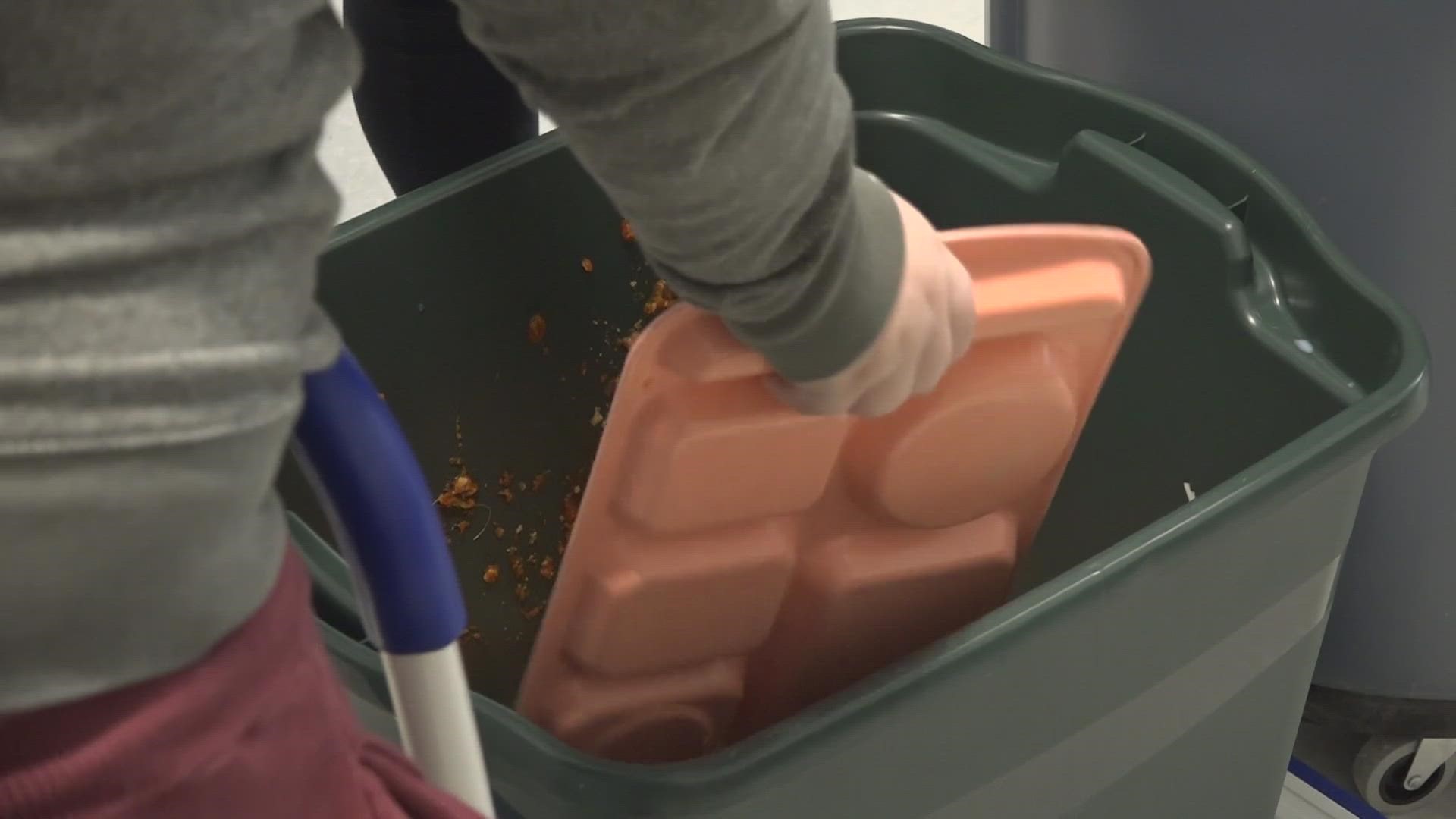ORONO, Maine — In the United States, about $5 million of food is wasted every school day, according to the American Journal of Preventive Medicine. The Natural Resources Council of Maine reported more than 7 million pounds of food is wasted in Maine's public schools every year.
Researchers at the University of Maine are hoping early education can lead to change through a new study.
UMaine's Mitchell Center for Sustainability Solutions is conducting a Maine school cafeteria waste study over the course of two months. It's taking a closer look at food waste in four elementary schools in Maine, including Asa C. Adams Elementary School, Buxton Center Elementary School, Lisbon Community School, and Sebago Elementary School.
Susanne Lee, a faculty fellow at UMaine's Mitchell Center, is one of the lead investigators of this study.
"We believe that we can really substantially reduce the amount of food waste that's happening in the schools," Lee said.
This research program starts by teaching students to sort their leftover school lunches in separate bins for liquids, food waste, and trash.
The second portion of the study is educating the students about why they're sorting their leftovers, where the waste goes, and how it impacts our environment through the production of methane gas in landfills. The researchers are also teaching students about the importance of nutrition.
"If you get them invested young, and you get them excited about it and make it feel like it's something important that they're doing, they're more apt to continue doing it," Ben Jacobson, the nutrition director for Orono public schools, said.
The idea is that if each student becomes more aware about how their own actions can make a difference, less food will end up in the trash and ultimately in landfills.
Researchers hope by the end of the study, the students will see for themselves a significant reduction in the amount of food waste produced by the school on a daily basis. If successful, Lee said the hope is to incorporate this program and education in schools across Maine through its partnership with the Maine Dept. of Education.
"They will be models for the rest of the state," Lee said.

